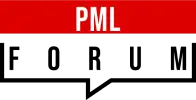Whether you are operating a long-established company or starting a new venture, as a business owner, you will have a lot of responsibilities. Among them is the need to ensure your business has right type and amount of business insurance. Similar to many small business owners, you may know very little about insurance although you are a specialist in your industry. There is skill involved in purchasing the right coverage and it is easy to make mistakes. Some mistakes might be minor; however, others can have severe consequences.
Outlined below are some mistakes to avoid when seeking out insurance for your business, provided by Smart Business Insurance:
Table of Contents
Not Purchasing Enough Liability Insurance
Practically any small business can be faced with a lawsuit, and this could cost anywhere from $3,000 to $150,000. This type of legal action can jeopardize the financial stability of your company and damage its reputation. A large claim could even bankrupt your business. To safeguard your company against lawsuits, do not hold back on limits when purchasing auto liability or general liability insurance.
If your business carries out contracted services for other companies, they could forbid you from beginning the work until proof of liability insurance is provided. The contract typically states the amount of insurance that must be purchased. Likewise, a landlord might decline leasing the property to you unless you have liability insurance for your business.
Always Going for the Least Expensive Policy
When purchasing business insurance, shopping around makes a lot of sense as some insurance providers offer better value compared to others. This is not an indication that the cheapest policy should always be chosen. The least expensive policy will not be a bargain if it renders you susceptible to expensive claims.
When seeking out insurance, it is wise to get multiple quotes from insurers and thoroughly compare them. Ensure that you think about the amounts and types of coverage listed by each insurer. If help is needed to compare the quotes, ask for assistance from your broker or agent.
Selecting a Low Deductible Automatically
The purpose for a deductible is to assist you in saving money on insurance premiums since it enables paying for small losses out of your pocket. It is basically a type of self-insurance. When purchasing auto physical damage or commercial property insurance, do not automatically go for the lowest deductible. You should think about the amount of premium that will be saved by increasing deductible from $150 to $300 or from $300 to $600, for example.
Generally, you should go for the largest deductible your company can comfortably afford. Aside from lowering your premium, a bigger deductible will provide you with an incentive to safeguarding your property against damage by adopting certain risk management practices.
Failing to Adjust Coverage as the Company Changes
Over time, most businesses undergo change. Smaller companies might grow, hiring additional employees and adding locations. Some businesses might change the combination of services or products they offer. When companies undergo change, the insurance also needs to be changed.
If your business went through significant change, like acquiring a new location or company, you should immediately notify your insurer or agent. All changes should be disclosed prior to the renewal of your policies. Endeavor to communicate with your broker or agent several weeks or even months in advance; in so doing, he or she will have time to compile information and send to your insurers. The broker can also assist you in deciding whether your insurance limits or coverages should be adjusted.
Not Buying Enough Property Insurance
If your personal property and your buildings are being insured under a commercial property policy, you should ensure adequate limits are purchased. This is crucial even if replacement cost coverage is included in the policy. While the cost to replace or repair damaged property will be automatically covered, it will not pay over the insurance limit. Should the cost to replace or repair your property go over the limit, the entire loss will not be covered by your policy.
Look out for agreed value provisions and coinsurance clauses that are frequently found in property policies. They levy a penalty if your property is underinsured. If there is a loss and you neglected to keep up a minimum amount of insurance, the entire amount of the loss will not be paid by your insurer. Underinsuring the property deliberately is not wise.
Neglecting to Read the Policies
While reading through your insurance policies might not be an enjoyable process, it is essential for you to do so. Reading it is the only way of knowing the risks that are covered and the ones that are not included. Do not wait until a loss has taken place before looking at your policies. It is impossible to purchase coverage for damage that has already happened.
For the most part, simplified language is used to write insurance policies; however, they still include some amount of “legalese.” Should you experience any trouble understanding the language used, you can ask an attorney or your insurance agent to break it down for you in layman’s terms.

